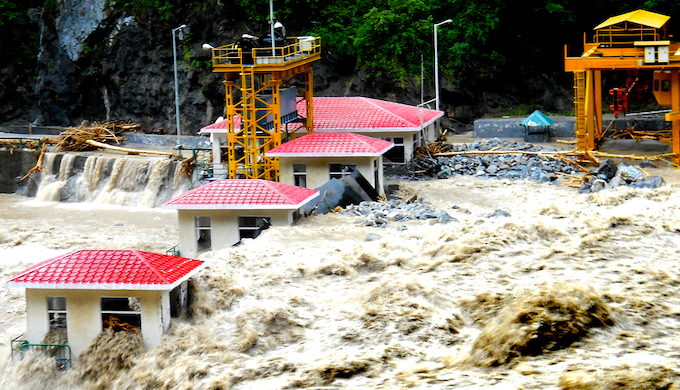It criticised mindless infrastructure like mega dams, highways, railway projects, and commercial tourism, and blamed decades of development-driven greed for unprecedented land use changes for damaging rivers, forests, grasslands, and mountains
Over 50 social and environmental organisations have jointly declared that climate disasters are systemic and policy-induced, resulting from governance failures at various levels.
This declaration, part of the ‘People for Himalaya’ campaign, involves signatories from Assam, Arunachal Pradesh, Manipur, Sikkim, Uttarakhand, Himachal Pradesh, and Jammu and Kashmir.
Affected Citizens of Teesta, Sikkim; Climate Front India; Jagori Rural Charitable Trust, Himachal Pradesh; Jaladhar Abhiyan, Rajasthan; Joshimath Bachao Sangarsh Samiti, Uttarakhand; Local Futures, Ladakh; Save The Hills, West Bengal; Youth for Himalaya; and J&K Forest Rights Coalition are among the signatories.
The year 2023 witnessed a tragic land subsidence incident in Uttarakhand’s Joshimath and floods in Himachal Pradesh in July and August, and in the Teesta river in the eastern Himalayas in October.
Scientists and researchers associated with these organisations warned that the impact of dry winters in 2024, with little to no snowfall, will manifest in the coming months.
A joint statement said that while media attention fades, questions about the systemic causes of these disasters persist in the Himalayan region.
The ‘Himalaya, Disaster and People’ dialogue was held on February 27-28. During the event, climate scientists highlighted the dual threat of extreme events and slow-onset climatic changes jeopardising the Himalayan ecosystem and the livelihoods of mountain-dependent communities.
A recent study showed that 90 per cent of the Himalayas may face year-long drought if global average temperatures increase by 3 degrees Celsius as compared to the pre-industrial (1850-90) period.
The declaration asserts that these disasters are not ”natural” but are induced by policies and historical resource exploitation, holding decision-makers accountable from the global to local levels.
The declaration underscores that those who are the least responsible for these disasters, such as marginal farmers, Dalits, forest dwellers, adivasis, women, migrant workers, minorities, persons with disabilities, and those in conflict zones, are the worst impacted and further marginalised.
It criticised mindless infrastructure like mega dams, highways, railway projects, and commercial tourism, and blamed decades of development-driven greed for unprecedented land use changes for damaging rivers, forests, grasslands, and mountains.
The document argued that top-down, market-dependent solutions and poorly designed climate finance projects have replaced local resilience with detrimental consequences for Himalayan societies.
It noted that the post-disaster support from the Centre has been insufficient and focuses on relief without adequate attention to prevention and rehabilitation.
Despite requests from Sikkim and Himachal Pradesh in 2023, these disasters were not officially declared ”national disasters”, the declaration stated.

